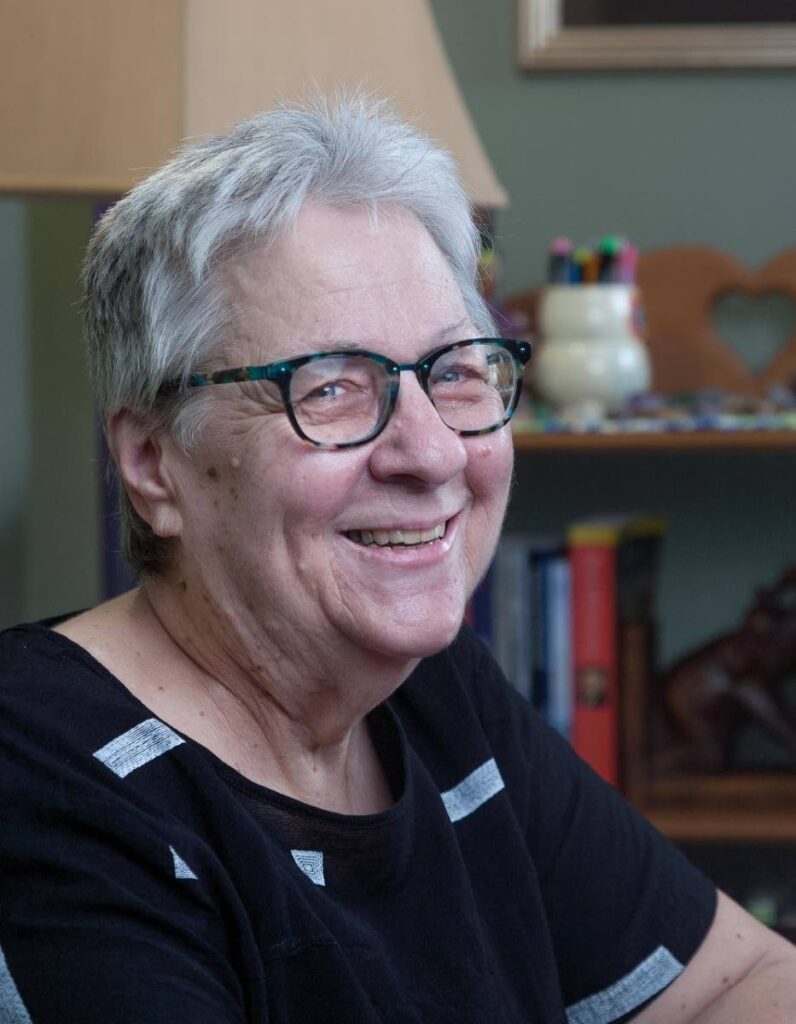Wisdom of erasing boundaries

Debbie Jacob
THIS IS a special time of year when we glide from Divali into the Christmas season. I like to think of it as a time of hope when we believe light prevails over darkness. Hindus, Jains and Sikhs celebrate Divali. Trinidad has the distinction of being a place in which Divali transcends religion and becomes part of national identity. Most of us appreciate the beauty of Divali and celebrate its empowering stories.
My daughter Ijanaya reminded me of Divali’s ability to transcend boundaries last week when she discussed Divali plans for her school in Antwerp, Belgium. Last year she and some parents of Indian children organised the school’s first Divali celebration.
We take the joy of celebrating each other’s religious holidays or commemorations in this country for granted. Christmas, Divali, Eid, Spiritual/Shouter Baptist Day, even Hosay, are appreciated and commemorated by many of us regardless of our faith. These observances help us to create a foundation of peace and harmony found in few, if any other countries.
In Antwerp, Indian children in my daughter’s library classes believe she is from India because she wears saris and other Indian clothes around Divali. She explains to them that everyone in her country recognises Divali. She will wear Chinese silk for Chinese New Year and put up a creche scene for Christmas.
She carries her pride in the racial, ethnic and religious diversity of TT everywhere she goes. It is a foundation in empathy that this country has paradoxically nurtured in her while forcing her to flee to other shores for job opportunities that don’t exist here.
Religion aside, Divali is interesting for its rich heritage of uplifting stories for three religions. In India, Jains believe Divali represents nirvana for Lord Mahavir in 527 BC. Sikhs honour Guru Hargobind Ji, their sixth guru on that day. Hindus have many different stories about Divali. The story of Rama searching for his kidnapped wife Sita and bringing her out of the forest and back to Ayodhya is the most popular story.
These narratives that celebrate the power of good over evil and knowledge over ignorance sustain us all – even if we follow no religion.
As we head towards Christmas, we celebrate hope in the birth of a child recognised as Jesus. We all know the crucifixion stories that will define Easter, but the beauty of Christmas is that we can concentrate on hope – not despair. As the momentum builds towards Christmas Day, we believe we can triumph over the dark days that will surely come.
This is the beauty of religion when it is not tainted by politics. Still, I always wonder why the magic and the wisdom of holidays don’t last beyond their designated days.
Why don’t we believe in heroism, goodness, peace and goodwill every day of the year? Why do we allow cynicism and mistrust to creep back into our lives after the euphoria of a holiday? How is it possible that we use religion to divide us in this world to the point of war?
There are so many questions we need to ask ourselves. History demonstrates how politics turns religions into opposing sides and creates boundaries that divide and threaten peace. The situation is so volatile that we often can’t empathise with both sides of a conflict without the risk of being accused of prejudice.
Take, for example, conflicts that break out in the Middle East. We should be examining the history of the region, particularly the artificial boundaries assigned during colonialism that have caused so much strife. There are no possible solutions for worldwide problems unless we can understand their cultural and religious history.
We are fortunate to live here and enjoy religious tolerance. I also look back to a magical time in my 20s during my post-graduate work in anthropology. At that time I appreciated living with a Hindu family in a Muslim neighbourhood in Chandni Chowk, old Delhi, India, near the Lal Qila (Red Fort). I visited Sikh gurdwaras, Hindu temples and learned Muslim history. I was taught the Hindi and Urdu word for everything so religion did not divide language for me.
I lived with one family who had transcended cultural, historical and religious boundaries. I came away from that experience feeling if one family could rise above that which divides us, then there is hope for everyone.
Take time to reflect on how wonderfully diverse and special this country is. We have much to celebrate. This holiday season, think of ways that you can erase any boundaries that divide us.

Comments
"Wisdom of erasing boundaries"